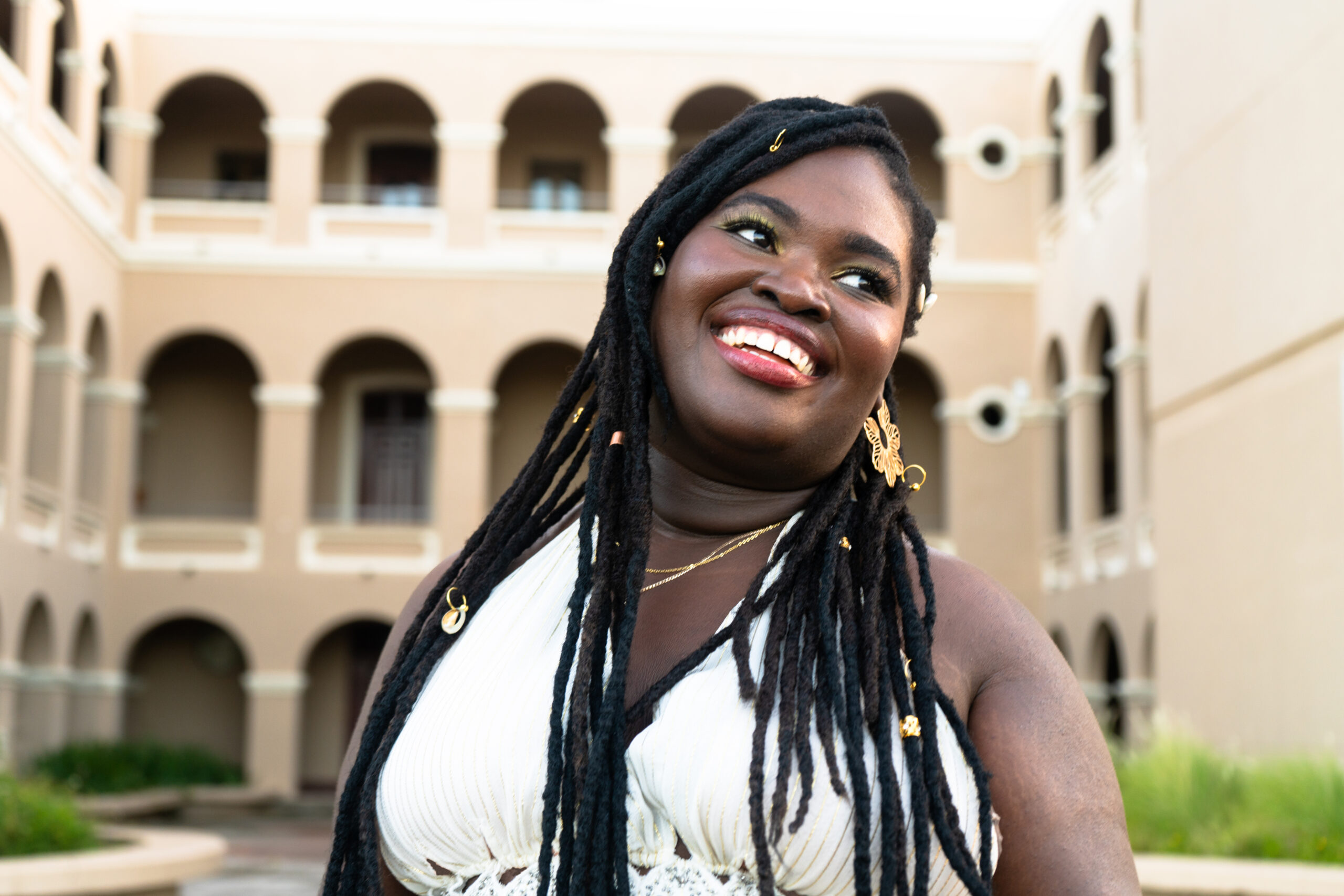“I came to this earth to do music, and that’s all I have been doing my entire life,” Cuban artist Daymé Arocena told LATINA back in May from her home in Puerto Rico. “I never made the decision to be a musician. I was just born a musician.”
Arocena’s parents supported her to fine-tune her talent from a young age. At ten years old, the Havana-born singer was admitted to her local music conservatory, where she spent her teenage years becoming a well-rounded musician. “There was a complicated situation behind [my parents’ support]. And it’s because only musicians, artists, and sportspeople in Cuba [are able] get the opportunity to travel and leave the island, to make some money to live a better life,” she said. “Your parents have to become really supportive if you really wanna make it.” After all, her mother, an infant cardiologist, was barely making a couple hundred dollars a year on the island. By traveling and performing, Arocena was able to provide the financial stability for herself and her family that she could have only dreamed of.
The artist was eventually forced to permanently relocate outside of Cuba to protect the safety of her husband, a photojournalist whose colleagues had been sent to jail and feared he could be next. Canada was their only option at the time due to travel restrictions, but after three years living there, the pandemic pushed her to look for a new home. “Canada was one of the worst countries to live in during the pandemic because it’s cold, it’s gray… It is not our weather. It is not our food. It’s not our culture. It was kind of depressing for us,” she said.
While she was reconsidering her living situation, Arocena was also rethinking her musical identity. Up to that point, she had labeled herself as a jazz and Cuban folk musician. She had been initially drawn to those genres for their improvisation, creativity, and harmonies. But now, she had come to realize that it was deeper than that. While she had grown up obsessed with pop stars such as Whitney Houston and loved the genre, she couldn’t see herself, an Afro-Cubana, breaking into mainstream Latin Pop. “I realized that jazz music and folk music is way more welcoming to black women like me,” she said.
Latin music has had to reckon with racism and exclusion, having often failed to recognize the contributions of Afro-Latinos and the additional challenges they face trying to break into the industry. Back in the height of the Black Lives Matter protests, Gloria “Goyo” Martínez of Colombian group ChocQuibTown penned an open letter condemning racism in Latin America, which, she said, inevitably permeates the music industry. “[Saying] that we are all equal negates racism and discrimination when we all know that it’s no secret that THERE IS NO EQUALITY,” she wrote in Spanish.
Arocena has since embraced the idea of breaking these barriers and challenging the status quo by creating more pop-sounding music that truly represents her. She was advised to contact Grammy-winning producer Eduardo Cabra, better known as Visitante Calle 13, for support in her new endeavors and his response blew her away. “I was like, no, that man has 28 Grammys, he’s not gonna even answer me. And you know what? I was impressed by his reaction. He invited me to come to Puerto Rico to spend a few days in his house and make a track and see what happens.”
After spending months in Puerto Rico, not only did Arocena find her voice but she also felt “at home again.” “I called my husband, who was in Canada, and I said ‘I’m not coming back’,” she said. Supportive, her husband later joined her side.
Arocena’s experience on the island has been so transformative that she dedicated her single, “Para Mover Los Pies,” to her new home while exploring more pop-sounding tunes. “This is the most pop music I have sang in my life,” Arocena said. “This is the beginning of a new moment in my career and I am doing as much as I can to make this pop.”
On Thursday October 18th, Arocena released a new single titled “Suave y Pegao” featuring Puerto Rican musician Rafa Pabon. “'[The song] came to me in a dream, the same night in which I had discovered that there are reggaeton musicians that listen to rumba. We come from the same matrix” said Arocena. “In this collaboration there is a fusion of bossa nova and jazz with a more urban side, and they end up fitting together very well. Even though we come from two very different worlds, it is a perfect combination” added Pabon.
You can stream Arocena’s new single on Apple Music.









